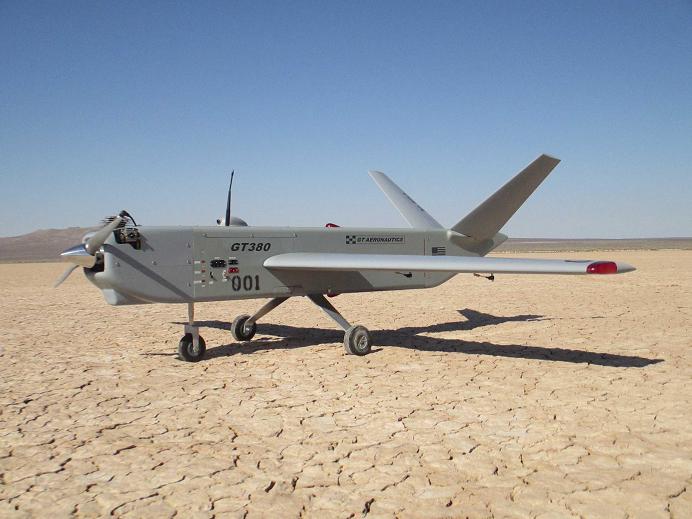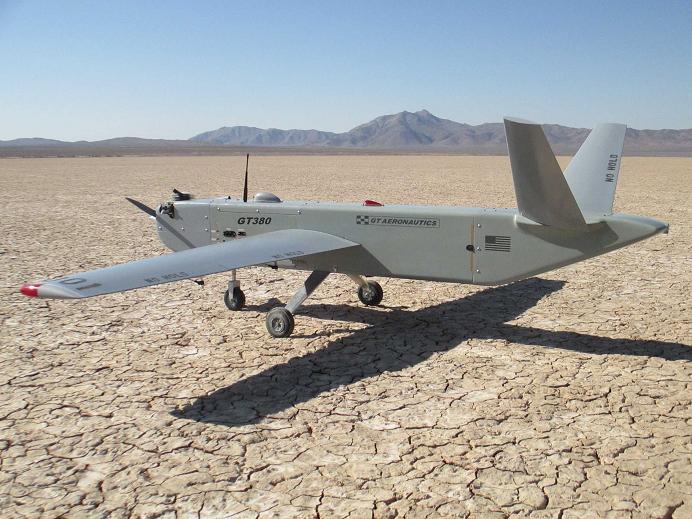
|
Homeland Security Through Innovations in Aerospace
|
| GT-380 Remotely Piloted Aircraft System |
|
Aircraft Specifications
Performance |


The GT-380 RPAS is a modular unmanned aircraft system designed to fulfill multi-role applications in the short field takeoff and landing environment. The aircraft incorporates multiple high-lift devices and "all-composite" construction to enable flight operations in confined rural and urban areas. With the high-lift devices stowed, the specially-designed laminar-flow airfoil allows the GT-380 to cruise in excess of 100 knots, reducing the "base to on-scene" flight time and extending its range. The fixed landing gear includes a rugged shock suspension system and steerable nosewheel, providing a robust capability in rough-field operations. Brakes are optional on the main wheels. The powerplant is an air-cooled, single cylinder engine. An optional powerplant is a dual cylinder engine that incorporates an electric starter for inflight start and a generator system capable of 300 watts of inflight power. An internal 1 gallon fuel supply and wing station fuel can provide endurance exceeding 3 hours and 100 nautical miles. On-site assembly, launch, and operation are accomplished with only 2 personnel in 30 minutes or less. The aircraft can launch and recover from semi-improved surfaces. The aircraft utilizes high-intensity LED and/or IR lighting for night operations. Night landings are performed using a portable IR night landing system. |
|
NOTE: The GT-380 RPAS completed initial flight testing in July 2015 and final flight testing in April 2016 to validate performance specifications. |
| GT AERONAUTICS, LLC, 26 Elk Road, Cody, WY 82414-7810, Phone & FAX: (307) 587-5221 |
©2026 GT AERONAUTICS, LLC